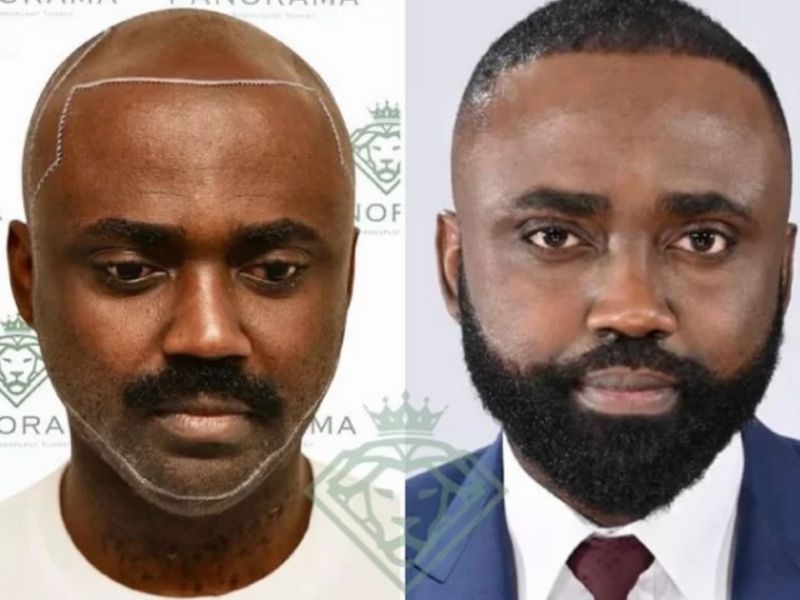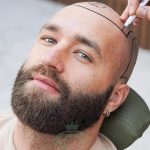Itching After Hair Transplant
One of the most common conditions after hair transplantation is itching. Although it is usually a natural part of the healing process, in some cases it can reach uncomfortable levels. Causes of itching include crusting, dry skin, the adaptation process of new hair follicles and the risk of infection. So, when does itching after hair transplantation start, how long does it last and how can it be alleviated? In this article, we discuss the causes of itching and effective solutions in detail.
What Causes Itching After Hair Transplant?
Itching after a hair transplant is a natural part of the healing process and is usually not a serious problem. However, knowing the causes of itching and taking appropriate measures can make this process more comfortable. Here are the most common causes of itching after hair transplantation:
1. Scabbing and Healing Process
The micro channels opened during the hair transplantation process begin to heal by forming crusts in the first few days after transplantation. This crusting process can cause itching and usually goes away on its own within 7-10 days.
2. Skin Dryness and Sensitivity
The skin may become dry and sensitive after hair transplantation. Especially if appropriate shampoos are not used during the hair washing process, dryness on the scalp increases and this can trigger itching.
3. Adaptation Process of New Hair Roots
While the hair follicles are getting used to their new location in the transplanted area, a slight stinging and itching sensation may occur on the scalp. This is a positive sign that the hair follicles are nourished and healing.
4. Infection or Allergic Reaction
In rare cases, infection or an allergic reaction may develop due to poor hygiene or improper product use. If there is excessive redness, swelling or inflammation with itching, it is necessary to consult a specialist immediately.
5. Drugs Used and Anesthesia Effect
After hair transplantation, medications recommended by the doctor or the effect of local anesthesia may cause temporary itching in some people. The body excretes these substances over time and returns to normal.
Itching is usually a temporary and natural process, but if it worsens or lasts longer, a doctor should be consulted. Doctor-approved moisturizing sprays, special shampoos and cold compresses can be used to relieve itching.
When Does Itching Start After Hair Transplantation and How Long Does It Last?
When Does Itching Start?
How Long Does Itching Last?
What Should You Do to Reduce Itching?
Is Itching Normal After Hair Transplant? Should You Worry?
Itching after hair transplantation is a natural part of the healing process and is usually nothing to worry about. While the hair follicles adapt to their new location in the transplanted area, the skin tries to renew itself. In this process, it is quite normal to feel itching due to crusting, tissue healing and acceleration of blood circulation. However, in some cases, itching may indicate a condition that needs attention.
When is itching normal?
- If itching is mild or moderate in the first 10-15 days
- If there is itching during crusting and healing
- If it gets lighter with moisturizing lotions or doctor-recommended shampoo
- If there is a slight stinging sensation during the growth phase of the newly transplanted hair follicles
This kind of itching is a positive sign of healing and usually goes away on its own.
When Should You Worry?
- If the itching is very severe and increases day by day
- If accompanied by redness, swelling or inflammation
- If there is a burning sensation and bad odor in the transplanted area
- If the skin is irritated or sore after scabbing
These symptoms may indicate problems such as infection, allergic reaction or hypersensitivity. In this case, it is important to consult the doctor who performed the hair transplantation immediately.
What should you do to relieve itching?
- Avoid scratching! Nails can damage hair follicles.
- Use lotions and shampoos recommended by your doctor regularly.
- Moisturize your skin from the inside by drinking plenty of water.
- You can relieve itching by applying cold compresses.
In conclusion, itching after a hair transplant is largely normal and often indicative of the healing process. However, considering the possible risks mentioned above, it is important to closely monitor the symptoms to see if there is a serious problem. If the itching is extremely uncomfortable and persists along with other symptoms, you should consult your doctor.
The Most Effective Methods to Reduce Itching After Hair Transplant
Itching after hair transplantation is a natural part of the healing process and is usually not a cause for concern. However, if the itching intensifies or persists for a long period of time, it can both cause discomfort and damage the healing process by making you want to scratch the transplanted area. Therefore, some effective methods should be applied to alleviate and control itching.
First of all, it is important to stick to the care routine recommended by the doctor after hair transplantation in Turkey. Since dry scalp can increase itching, moisturizing lotions and doctor-approved special shampoos should be used after transplantation. These products help soothe the scalp and relieve itching. In addition, regular and gentle hair washing from the first days reduces scaling and prevents itching, ensuring a smoother healing process for those undergoing a hair transplant in Turkey.
Another way to relieve itching is to maintain the body’s moisture balance by drinking plenty of water. Adequate water consumption prevents the scalp from drying out and reduces itching. In addition, following a balanced nutrition program that includes vitamins and minerals recommended after hair transplantation will contribute to both strengthening the hair follicles and accelerating the healing process. This is particularly beneficial for individuals considering the best hair transplant in Turkey, as proper aftercare enhances results and minimizes discomfort.
When the itching sensation increases, scratching should be avoided. Scratching the hair transplant area can damage the newly transplanted grafts and negatively affect the healing process. Instead, a cold compress can be applied to relieve mild itching. However, care should be taken that the compress does not directly touch the transplanted area. Proper post-operative care not only reduces itching but also ensures optimal results, making the investment in a hair transplant cost in Turkey worthwhile.



